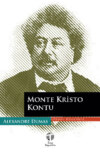Kitabı oku: «The Regent's Daughter», sayfa 7
CHAPTER XV.
HIS EXCELLENCY THE DUC D'ORLEANS
Dubois, on leaving the chevalier, contemplated the chance which had again placed in his hands the future of the regent and of France. In crossing the hall he recognized L'Eveille, and signed to him to follow. It was L'Eveille who had undertaken to get the real La Jonquiere out of the way. Dubois became thoughtful: the easiest part of the affair was done; it now remained to persuade the regent to put himself in a kind of affair which he held in the utmost horror – the maneuvering of intrigue.
Dubois began by asking where the regent was, and how occupied? The prince was in his studio, finishing an etching commenced by Hubert, the chemist, who, at an adjoining table, was occupied in embalming an ibis, by the Egyptian method, which he professed to have recovered.
A secretary was reading some letters to the regent.
All at once, to the regent's astonishment – for this was his sanctum – the door opened, and an usher announced Captain la Jonquiere.
The regent turned.
"La Jonquiere?" said he; "who is this?"
Hubert looked surprised that a stranger should be thus unceremoniously intruded on their privacy.
At this moment a long-pointed head appeared at the open door.
The regent did not, at first, recognize Dubois in his disguise: but shortly, the pointed nose, which had not its match in the kingdom, betrayed him.
A merry look took the place of the astonishment which the regent's features had at first displayed.
"Ah, it is you, abbe!" said his highness, laughing, "and what is the meaning of this disguise?"
"It means that I have changed my skin, and from a fox have turned into a lion; and now Monsieur the Chemist and Monsieur the Secretary, do me the favor to take your bird and letters elsewhere."
"Why so?" asked the regent.
"Because I have important business to speak of with you."
"Go to the devil with your important business; it is too late: come to-morrow."
"Monseigneur," said Dubois, "do not force me to remain till to-morrow in this villainous disguise."
"Do what you please, but I have decided that the rest of this day shall be given to pleasure."
"Well, I come to propose a disguise to you also."
"A disguise! what do you mean, Dubois?" asked the regent, who thought it was probably one of his ordinary masquerades.
"Ah, it makes your mouth water, Monsieur Alain."
"Speak; what do you want to do?"
"First send away your chemist and secretary."
"You still wish it?" – "Decidedly."
"Very well, then."
The regent signed to them to leave: they did so.
"And now," said he, "what is it?"
"I want to present to you, monseigneur, a young man, a very delightful fellow, just arrived from Bretagne, and strongly recommended to me."
"His name?"
"The Chevalier Gaston de Chanlay."
"De Chanlay!" said the regent, "the name is not unknown to me."
"Indeed."
"Yes, I think I have heard it formerly; but I do not remember where or how. What does your protégé come to Paris for?"
"Monseigneur, I shall leave him to tell you that himself."
"Tell it to me."
"Yes; that is to say, to the Duc d'Olivares, whom you are about to personate. Ah, my protégé is a discreet conspirator, and I have had some trouble to get at the truth of things. He was addressed to Paris, to a certain La Jonquiere, who was to present him to the Duc d'Olivares. Do you understand now?"
"Not at all."
"Well, I have been Captain la Jonquiere, but I cannot be both La Jonquiere and his excellency."
"So, you reserve that part – "
"For you, monseigneur."
"Thank you. So you think that, under a false name, I will get at the secrets – "
"Of your enemies, monseigneur," interrupted Dubois. "Pardieu! what a dreadful crime, and how it would distress you, to change name and dress; you have never before learned secrets by such means. But remember, monseigneur, our many disguises, and after being called M. Alain and Maitre Jean, you may well, I think, without anything derogatory to your dignity, be called Le Duc d'Olivares."
"I ask no better than a disguise for amusement, but – "
"But a disguise," continued Dubois, "to preserve the peace of France, to prevent traitors from overthrowing the kingdom, to prevent assassins from murdering you – this, I suppose, is unworthy of you. I understand; ah, if it were only in pursuit of some little ironmongress in the Pont Neuf, or the pretty widow of the Rue Saint Augustine, it might be worth your while."
"If I do what you wish," said the regent, "what will be the result?"
"Probably, that you will own that I am no visionary, and that you will allow others to watch over you, since you will not watch over yourself."
"But, once for all, if the thing turns out not worth the trouble, shall I be freed from your worrying?"
"I promise you, on my honor."
"Abbe, if you have no objection, I should prefer another oath."
"Oh, monseigneur, you are too hard; but you consent?"
"Again this folly."
"You shall see if it be folly."
"I believe you make plots to frighten me."
"Then they are well made; you shall see."
"Are you certain?"
"Absolutely."
"If I am not frightened, look to yourself."
"Monseigneur exacts too much."
"You are not sure, Dubois."
"I swear to you, monsieur, that you will be moved, and will be glad to speak with his excellency's tongue."
And Dubois went out before the regent had time to withdraw his consent.
Five minutes after, a courier entered the antechamber, and gave a letter to a page, who brought it to the regent.
"Madame Desroches," said he, looking at the writing, and, breaking the seal, read as follows:
"Monseigneur – The young lady you left in my charge does not appear to be in safety here."
"Bah," exclaimed the regent, and then read on —
"The residence in the town, which your highness feared for her, would be a hundred times better than isolation; and I do not feel strong enough to defend her as I would wish, and as I ought."
"Ouais," said the regent, "it seems something is the matter."
"A young man, who had written to Mademoiselle Helene shortly before your arrival yesterday, presented himself this morning at the pavilion; I wished to refuse him admittance, but mademoiselle so peremptorily ordered me to admit him, and to retire, that in her look and tone I recognized the blood which commands."
"Yes, yes," said the regent, "she is, indeed, my daughter; but who can this young man be? Some coxcomb she must have seen in the convent parlor." Then he read on:
"I believe, monseigneur, that this young man and mademoiselle have met before. I did not think it wrong to listen, for your highness's service, and in spite of the double door I once heard him say, 'To see you as formerly.' Will your royal highness secure me against this danger, and send me a written order which I can use to shelter myself from the anger of mademoiselle."
"Diable!" exclaimed the regent, "it cannot be a love affair already; brought up in the only convent in France where men never pass the parlor. No, it is some foolish fear of Madame Desroches; but let us see what else she writes."
"P. S. – I have just been to the hotel Tigre-Royal for information. The young man arrived yesterday evening at seven o'clock, just three-quarters of an hour before mademoiselle; he came by the Bretagne road, that is, the road she also came. He travels under the name of M. de Livry."
"Oh!" said the regent, "this looks like a concerted plan. Pardieu! Dubois would laugh if he knew this; how he would talk! It is to be hoped he knows nothing of it, in spite of his police. Hola! page."
The page who had brought the letter entered.
"Where is the messenger from Rambouillet?"
"He is waiting for an answer."
"Give him this, and tell him to start at once."
As to Dubois, while preparing the interview between Gaston and the false duke, he made the following calculation.
"I hold the regent both by himself and his daughter. This intrigue of his is either serious or not; if it be not, I distress her in exaggerating it. If it be serious, I have the merit of having discovered it; but I must not strike both blows at once. First, I must save the duke, then his daughter, and there will be two rewards. – Is that the best? – Yes – the duke first – if a young girl falls, no one suffers, if a man falls, a kingdom is lost, let us begin with the duke." And Dubois dispatched a courier to M. de Montaran at Nantes.
M. de Montaran was, as we have said, the ancient governor of Bretagne.
As to Gaston, his plan was fixed. Ashamed of being associated with a man like Jonquiere, he congratulated himself that he was now to communicate with the chief of the enterprise, and resolved, if he also appeared base and venial, to return and take counsel with his friends at Nantes. As to Helene, he doubted not; he knew her courage and her love, and that she would die rather than have to blush before her dearest friend. He saw with joy that the happiness of finding a father did not lead her to forget the past, but still he had his fears as to this mysterious paternity; even a king would own such a daughter, were there not some disgraceful obstacle.
Gaston dressed himself carefully; there is a coquetry in danger as well as in pleasure, and he embellished his youth with every advantage of costume.
The regent, by Dubois's advice, dressed in black velvet and half hid his face in an immense cravat of Mechlin lace.
The interview was to take place in a house belonging to the regent, in the Faubourg Saint Germain: he arrived there at five o'clock, as night was falling.
CHAPTER XVI.
MONSEIGNEUR, WE ARE BRETONS
Gaston remained in the room on the ground-floor, and dressed himself carefully, as we have said, while Tapin continued his apprenticeship. By the evening he knew how to measure a pint as well as his predecessor, and even better; for he thought that in the compensation which would be given to Bourguignon, waste would be considered, and that therefore the less waste the better; so the morning's customer on her return got badly served, and went off disgusted.
When his toilet was finished, Gaston began to inspect La Jonquiere's library, and found it composed of three sets of books: theatrical books, obscene books, and arithmetical books.
While he was thus engaged a man entered, introduced by Tapin, who went out directly, and left him alone with Gaston. The man announced that Captain La Jonquiere, not being able to return, had sent him in his stead. Gaston demanding proof, the man showed a letter in the same terms and the same writing as the specimen Gaston had received, and then the half coin, after which Gaston made no difficulty as to following him, and both got into a carefully closed carriage. They crossed the Pont-Neuf, and, in the Rue du Bac, stopped at the courtyard of a pavilion; then the man drew from his pocket the paper bearing the chevalier's name as the third signal of recognition.
Gaston and his companion alighted, ascended the four steps of the doorway, and entered a large circular corridor surrounding the pavilion. Gaston looked round and saw that his guide had disappeared, and that he was alone.
His heart beat quickly. He was about to face, not the tool, but the master and originator of the whole plot, the representative of a king; he was to play a kingdom against a kingdom.
A bell sounded within.
Gaston almost trembled. He looked in a glass and saw that he was pale; a thousand new ideas assailed him; the door opened, and La Jonquiere appeared.
"Come, chevalier," said he, "we are expected."
Gaston advanced with a firm step.
They found a man seated in an armchair, his back turned to the door. A single light, placed on a table and covered with a shade, lighted only the lower part of his body; his head and shoulders were in shadow.
Gaston thought the face noble, and understood at once that this was a man of worth, and no La Jonquiere. The mouth was benevolent and the eyes large, bold, and firm, like those of a king or a bird of prey; deep thought was written on his brow, prudence and some degree of firmness in the lower part of the face; all this, however, in the half-darkness, and in spite of the Mechlin cravat.
"At least this is an eagle," thought he, "the other was but a raven."
Gaston bowed silently, and the unknown, rising, went and leaned against the chimney.
"Monsieur is the person of whom I spoke to your excellency," said La Jonquiere, "M. le Chevalier Gaston de Chanlay."
The unknown bowed silently.
"Mordieu!" whispered Dubois in his ear, "if you do not speak he will not say anything."
"This gentleman comes from Bretagne, I believe," said the duke, coldly.
"Yes, monsieur; but will your excellency pardon me. Captain la Jonquiere has told my name, but I have not been told yours. Excuse my rudeness, monseigneur; it is not I who speak, it is my province, which sends me."
"You are right, monsieur," said La Jonquiere, quickly, taking from a portfolio on the table a paper, at the bottom of which was a large signature with the seal of the king of Spain.
"Here is the name," said he.
"Duc d'Olivares," read Gaston.
Then turning to him, he bowed respectfully.
"And now, monsieur," said the duke, "you will not, I presume, hesitate to speak."
"I thought I had first to listen," said Gaston, still on the defensive.
"True: but, remember, it is a dialogue; each one speaks in turn."
"Monseigneur, you do me too much honor, and I will set the example of confidence."
"I listen, monsieur."
"Monseigneur, the states of Bretagne – "
"The malcontents of Bretagne," interrupted the regent smiling, in spite of a sign from Dubois.
"The malcontents are so numerous," replied Gaston, "that they may be considered the representatives of the province: however, I will employ the word your excellency points out; the malcontents of Bretagne have sent me to you, monseigneur, to learn the intentions of Spain in this affair."
"First let us learn those of Bretagne."
"Monseigneur, Spain may count on us; we pledge our word, and Breton loyalty is proverbial."
"But what do you promise?"
"To second the efforts of the French nobility."
"But are you not French?"
"Monseigneur, we are Bretons. Bretagne, reunited to France by a treaty, may look on herself as separated from the moment when France no longer respects the rights of that treaty."
"Yes, I know; the old story of Anne de Bretagne's contract. It is a long time since that contract was signed, monsieur."
The false La Jonquiere pushed the regent violently.
"What matter," said Gaston, "if each one of us has it by heart?"
CHAPTER XVII.
MONSIEUR ANDRE
"You said that the Breton nobility were ready to second the French nobility: now, what do the French nobility want?"
"They desire, in case of his majesty's death, to place the king of Spain on the throne of France, as sole heir of Louis XIV."
"Very good, very good," said La Jonquiere, taking snuff with an air of extreme satisfaction.
"But," said the regent, "the king is not dead, although you speak almost as if he were."
"The Grand Dauphin, the Duc and Duchesse de Bourgogne and their children, disappeared in a deplorable manner." The regent turned pale with anger; Dubois coughed.
"Then they reckon on the king's death?"
"Generally, monseigneur."
"Then that explains how the king of Spain hopes, in spite of the renunciation of his rights, to mount the throne of France. But, among the people attached to the regency, he may meet with some opposition."
The false Spaniard involuntarily lingered on these words.
"Monseigneur," replied the chevalier, "this case also has been foreseen."
"Ah!" said Dubois, "this has been foreseen. Did not I tell you, monseigneur, that the Bretons were valuable to us. Continue, monsieur, continue."
In spite of this invitation, Gaston was silent.
"Well, monsieur," said the pretended duke, "I am listening."
"This secret is not mine, monseigneur."
"Then," said the duke, "I have not the confidence of your chiefs?"
"On the contrary, you alone have it."
"I understand, monsieur; but the captain is my friend, and I answer for him as for myself."
"My instructions are, monseigneur, to speak to you alone."
"But, I tell you, I answer for the captain."
"In that case," said Gaston, bowing, "I have said all I have to say."
"You hear, captain," said the regent; "have the kindness to leave us alone."
"Yes, monseigneur; I have but two words to say to you."
Gaston drew back.
"Monseigneur," whispered Dubois, "press him hard – get out the whole affair – you will never have such another chance. What do you think of our Breton?"
"A noble fellow; eyes full of intelligence and a fine head."
"So much the better for cutting it off."
"What do you say?"
"Nothing, monseigneur; I am exactly of your opinion. M. de Chanlay, your humble servant; some might be angry that you would not speak before them, but I am not proud, and, provided all things turn out as I expect, I do not care for the means."
Chanlay bowed.
"Monsieur," said the regent, when Dubois had closed the door, "we are alone, and I am listening. Speak – you understand my impatience."
"Yes, monseigneur. You are doubtless surprised that you have not yet received from Spain a certain dispatch which you were to send to Cardinal Olocroni?"
"True, monsieur," said the regent, dissembling with difficulty.
"I will explain the delay. The messenger who should have brought this dispatch fell ill, and has not left Madrid. The Baron de Valef, my friend, who was in Spain, offered himself; and, after three or four day's hesitation, at length – as he was a man already tried in Cellamare's conspiracy – they trusted him."
"In fact," said the regent, "the Baron de Valef narrowly escaped Dubois's emissaries; it needed some courage to renew such a work. I know that when the regent saw Madame de Maine and Cellamare arrested; Richelieu, Polignac, Malezieux, and Mademoiselle de Launay in the Bastille; and that wretched Lagrange-Chancel at the Sainte Marguerite, he thought all was finished."
"You see he was mistaken, monseigneur."
"But do not these Breton conspirators fear that in thus rising they may sacrifice the heads of the Paris conspirators whom the regent has in his power?"
"They hope to save them, or die with them."
"How save them?"
"Let us return to the dispatch, if you please, monseigneur; here it is."
The regent took the paper, but seeing the address to his excellency the Duc d'Olivares, laid it on the table unopened. Strange inconsistency! This man opened two hundred letters a day by his spies; it is true that then he dealt with a Thorey or a Dubois, and not with a Chevalier de Chanlay.
"Well, monseigneur," said Gaston.
"You know, doubtless, what this dispatch contains, monsieur?"
"Not word for word, perhaps; but I know what was arranged."
"Well, tell me. I shall be glad to know how far you are admitted into the secrets of the Spanish cabinet."
"When the regent is got rid of," said Gaston, without noticing the slight start which his interlocutor gave at these words, "the Duc de Maine will be provisionally recognized in his place. The Duc de Maine will at once break the treaty of the quadruple alliance signed by that wretch Dubois."
"I wish La Jonquiere had been here to hear you speak thus; it would have pleased him. Go on, monsieur."
"The pretender will start with a fleet for the English shore; Prussia, Sweden, and Russia will then be engaged with Holland; the empire will profit by this war to retake Naples and Sicily, to which it lays claim through the house of Suabia; the Grand Duchy of Tuscany will be assured to the second son of the king of Spain, the Catholic low countries will be re-united to France, Sardinia given to the Duke of Savoy, Commachio to the pope. France will be the soul of the great league of the south against the north, and, if Louis XV. dies, Philip V. will be crowned king of half the world."
"Yes, I know all that," said the regent, "and this is Cellamare's conspiracy renewed. But you used a phrase I did not understand."
"Which, monseigneur?"
"You said, when the regent is got rid of. How is he to be got rid of?"
"The old plan was, as you know, to carry him off to the prison of Saragossa, or the fortress of Toledo."
"Yes; and the plan failed through the duke's watchfulness."
"It was impracticable – a thousand obstacles opposed it. How was it possible to take such a prisoner across France?"
"It was difficult," said the duke; "I never understood the adoption of such a plan. I am glad to find it modified."
"Monseigneur, it would be possible to seduce guards, to escape from a prison or a fortress, to return to France, retake a lost power, and punish those who had executed this abduction. Philip V. and Alberoni have nothing to fear; his excellency the Duc d'Olivares regains the frontier in safety; and, while half the conspirators escape, the other half pay for all." – "However – "
"Monseigneur, we have the example of the last conspiracy before our eyes, and you yourself named those who are in the Bastille."
"What you say is most logical," replied the duke.
"While, on the contrary, in getting rid of the regent – " continued the chevalier.
"Yes; you prevent his return. It is possible to return from a prison, but not from a tomb – that is what you would say?"
"Yes, monseigneur," replied Gaston, with a somewhat tremulous voice.
"Now I understand your mission. You come to Paris to make away with the regent?"
"Yes, monseigneur."
"Explain yourself."
"We were five Breton gentlemen, forming a small party or league in the midst of the general association, and it was agreed that the majority should decide on our plans."
"I understand, and the majority decided that the regent should be assassinated."
"Yes, monseigneur, four were for assassination, and one against it."
"And that one?"
"If I lose your excellency's confidence I must own that I was that one."
"But, then, why are you to accomplish a design you disapprove?"
"Chance was to decide the one who should strike the blow."
"And the lot?"
"Fell on me, monseigneur."
"Why did you not refuse?"
"The ballot was without names, no one knew my vote. I should have been taken for a coward."
"And you came to Paris?"
"For the task imposed on me."
"Reckoning on me?"
"As on an enemy of the regent, for aid in accomplishing an enterprise which not only concerns the interests of Spain, but which will save our friends from the Bastille."
"Do they run as much danger as you believe?"
"Death hovers over them; the regent has proofs, and has said of M. de Richelieu that if he had four heads he has wherewith to condemn them all."
"He said that in a moment of passion."
"What, monseigneur, you defend the duke – you tremble when a man devotes himself to save, not only his accomplices, but two kingdoms – you hesitate to accept that devotion."
"If you fail!"
"Everything has its good and evil side; if the happiness of being the savior of a country is lost, the honor of being a martyr to its cause is gained."
"But remember, in facilitating your access to the regent, I become your accomplice."
"Does that frighten you, monseigneur?"
"Certainly, for you being arrested – "
"Well – I being arrested?"
"They may force from you, by means of tortures, the names of those – "
Gaston's reply was a smile of supreme disdain.
"You are a foreigner and a Spaniard, monseigneur," said he, "and do not know what a French gentleman is, therefore I pardon you."
"Then I may reckon on your silence?"
"Pontcalec, Du Couëdic, Talhouet, and Montlouis, doubted me for an instant, and have since apologized to me for doing so."
"Well, monsieur, I will think seriously of what you have said, but in your place – "
"In my place?"
"I would renounce this enterprise."
"I wish I had never entered into it, monseigneur, I own, for since I did so a great change has taken place in my life, but I am in it, and must accomplish it."
"Even if I refuse to second you?"
"The Breton committee have provided for that emergency."
"And decided – "
"To do without you."
"Then your resolution – "
"Is irrevocable."
"I have said all I had to say," replied the regent, "since you are determined to pursue your undertaking."
"Monseigneur," said Gaston, "you seem to wish to retire."
"Have you anything more to say to me?"
"Not to-day; to-morrow, or the day after."
"You have the captain as go-between – when he gives me notice I will receive you with pleasure."
"Monseigneur," said Gaston firmly, and with a noble air, "let me speak freely. We should have no go-between; you and I – so evidently separated by rank and station – are equal before the scaffold which threatens us. I have even a superiority over you, since I run the greater danger; however, you are now, monseigneur, a conspirator, like the Chevalier de Chanlay, with this difference: that you have the right – being the chief – to see his head fall before yours – let me, then, treat as an equal with your excellency, and see you when it is necessary."
The regent thought for a moment.
"Very well," said he, "this house is not my residence; you understand I do not receive many at my house: since the war, my position is precarious and delicate in France; Cellamare is in prison at Blois; I am only a sort of consul – good as a hostage – I cannot use too many precautions."
The regent lied with a painful effort.
"Write, then, poste restante to M. Andre, you must name the time at which you wish to see me, and I will be there."
"Through the post?" asked Gaston.
"Yes, it is only a delay of three hours; at each post a man will watch for your letter, and bring it to me when it arrives; three hours after you can come here."
"Your excellency forgets," said Gaston, laughing, "that I do not know where I am, in what street, at what number; I came by night. Stay, let us do better than that; you asked for time to reflect, take till to-morrow morning, and at eleven o'clock send for me. We must arrange a plan beforehand, that it may not fail, like those plans where a carriage or a shower of rain disconcerts everything."
"That is a good idea," said the regent; "to-morrow, then, at eleven o'clock, you shall be fetched, and we will then have no secrets from each other."
Gaston bowed and retired. In the antechamber he found the guide who brought him, but he noticed that in leaving they crossed a garden which they had not passed through on entering, and went out by a different door. At this door the carriage waited, and it quickly arrived at the Rue des Bourdonnais.










